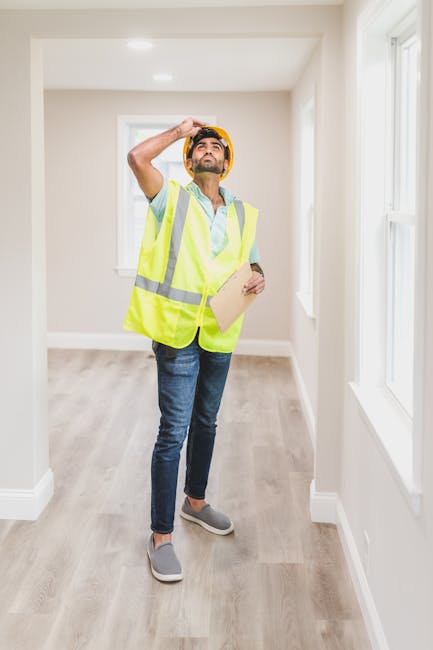
Are you a car enthusiast looking to turn your passion into a profitable business venture? Then obtaining a dealer license may be the next big step for you. Becoming a licensed dealer not only allows you to buy and sell cars legally, but it also opens up a world of opportunities in the automotive industry. In this article, we will guide you through the process of obtaining a dealer license and starting your own car business.
Understanding the Importance of a Dealer License
A dealer license is a permit that authorizes individuals or businesses to buy and sell vehicles legally. Without a dealer license, selling cars on a commercial scale is illegal in most jurisdictions. Having a dealer license not only ensures that you comply with the law but also provides several benefits for your car business.
1. Access to Wholesale Vehicle Auctions: With a dealer license, you gain access to exclusive wholesale vehicle auctions where you can purchase cars at significantly lower prices. This gives you a competitive edge in the market, as you can offer more competitive prices to your customers.
2. Ability to Sell Vehicles Across State Lines: A dealer license allows you to sell vehicles across state lines without any restrictions. This expands your customer base and increases the potential for higher sales.
3. Financing Options: Many financial institutions offer exclusive financing options to licensed dealers. This enables you to provide flexible and attractive financing options to your customers, making it easier for them to purchase vehicles from your dealership.
Applying for a Dealer License
Now that you understand the benefits of obtaining a dealer license, let’s explore the steps you need to take to apply for one.
1. Research State Requirements: Dealer license requirements vary from state to state. Therefore, it is crucial to research and understand the specific requirements in your state. Visit your state’s Department of Motor Vehicles (DMV) website or contact them directly to gather all the necessary information.
2. Attend a Dealer License Training Course: Some states require applicants to complete a dealer license training course. These courses provide valuable knowledge on the legal and administrative aspects of operating a car dealership. Be sure to check if your state mandates such a course.
3. Establish a Business Entity: To apply for a dealer license, you typically need to register a business entity. This can be a sole proprietorship, partnership, or corporation. Consult with a legal professional or a business advisor to determine the most suitable business structure for your car business.
4. Secure a Business Location: Most states require licensed dealers to have a physical business location. This means you may need to lease or purchase a commercial property to establish your dealership. Ensure that the location meets all zoning and licensing requirements.
5. Obtain Insurance: Before applying for a dealer license, you will need to secure the appropriate insurance coverage. This typically includes liability insurance, garage insurance, and a bond. Insurance protects your business and customers in case of accidents or damages.
6. Complete License Application and Pay Fees: Once you have fulfilled all the prerequisites, you can proceed to complete the dealer license application. This involves providing the necessary documentation, such as proof of insurance, business registration, and personal information. Additionally, you will need to pay the required fees.
7. Pass Background Checks and Inspections: As part of the licensing process, you may be subjected to background checks and inspections. These checks ensure that you have a clean record and meet all the safety and operational standards.
8. Attend a Dealer License Orientation: Some states may require you to attend a dealer license orientation session. This is an opportunity to learn about your legal responsibilities as a licensed dealer and understand the rules and regulations governing the industry.
Conclusion
Obtaining a dealer license is the first step towards starting your own car business. It not only provides legal authorization but also opens up a world of possibilities in the automotive industry. By following the steps outlined in this article, you can navigate the process of obtaining a dealer license smoothly and pave the way to a successful car business. So, get ready to embark on this exciting journey and turn your passion for cars into a profitable venture.
 The Benefits of Professional Landscaping Services
The Benefits of Professional Landscaping Services Maximizing Your Tax Savings: A Guide to Understanding CPA Services
Maximizing Your Tax Savings: A Guide to Understanding CPA Services Why Seek the Help of Kitchen Design Experts
Why Seek the Help of Kitchen Design Experts
 Transforming Your Data with the Largest Single Feature Service in ArcGIS Online
Transforming Your Data with the Largest Single Feature Service in ArcGIS Online When it involves high-end transport, working with a licensed operator solution is the embodiment of refinement and benefit. Whether you require to take a trip for company functions or simply intend to take pleasure in an evening out on the town, a professional driver can offer an unequaled degree of convenience and also design. In this post, we will check out the many benefits of employing a driver service and why it deserves every cent.
When it involves high-end transport, working with a licensed operator solution is the embodiment of refinement and benefit. Whether you require to take a trip for company functions or simply intend to take pleasure in an evening out on the town, a professional driver can offer an unequaled degree of convenience and also design. In this post, we will check out the many benefits of employing a driver service and why it deserves every cent.
 Trailer Maintenance
Trailer Maintenance